Resources
In recent years, it has become increasing fashionable to describe organizations as cultures. Anthropologists, management consultants, organizational psychologists, and other social scientists have helped to popularize the notion that cultural analyses yield important insights about the life and dynamics of an organization. The purpose of this article is to explore this concept within the cultures of academia.
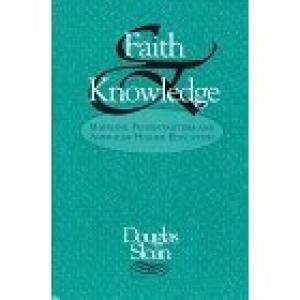
Sloan explores the impact that the Protestant theological renaissance (1925-1960) had on American colleges and universities, focusing in particular on the church's most significant claim to have a continuing voice in higher education. He traces the role of the national ecumenical and denominational organizations, and studies the changing place of college chaplains. (From the Publisher)
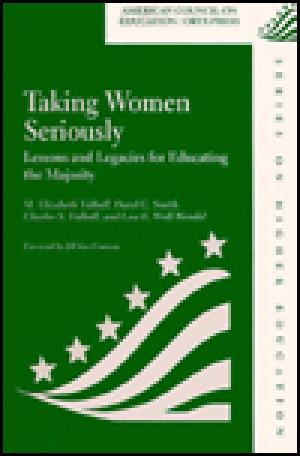
Over the past 25 years, research findings have continued to underscore the direct and positive impact of women's colleges--institutions where the academic aspirations of women are the focus of the entire educational community. This book identifies the distinctive characteristics that make these colleges preeminent contributors of achieving women to the wider society. The authors also explain how the lessons and legacies of these institutions have the potential to enhance the education environment at all colleges. (From the Publisher)
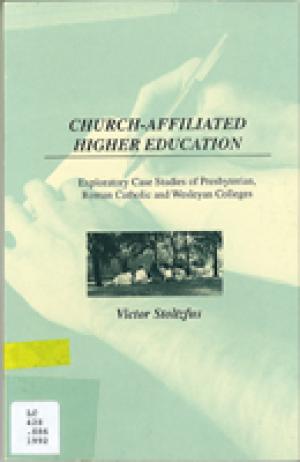
Stoltzfus shows us the pressures on religious colleges towards assimilation into the mainstream, but also shows us the surprising strength of those colleges and the unique ways in which each acts to pass on the living tradition of its faith. (From the Publisher)

Throughout his long and prolific career, Edward Shils brought an extraordinary knowledge of academic institutions to discussions about higher education. The Calling of Education features Shils's most illuminating and incisive writing on this topic from the last twenty-five years of his life. The first essay, "The Academic Ethic," articulates the unique ethical demands of the academic profession and directs special attention to the integration of teaching and research. Other pieces, including Shils's renowned Jefferson lectures, focus on perennial issues in higher learning: the meaning of academic freedom, the connection between universities and the state, and the criteria for appointing individuals to academic positions. Edward Shils understood the university as a great symphonic conductor comprehends the value of each instrument and section, both separately and in cooperation. The Calling of Education offers Shils's insightful perspective on problems that are no less pressing than when he first confronted them. (From the Publisher)

In Seminaries, Theologates, and the Future of Church Ministry, Sr. Schuth details some of the ways seminaries are responding to the ministerial requirements of the Church of today and tomorrow. Extensive research images of Church, priesthood, and ministry are taken from a broad sample of faculty, students, administrators, and trustees to answer such questions as: What is the nature of the local and universal mission of the Church in which people seek to serve these days? What is their vision of the church's future? How must people be prepared to carry, out the vision they hold about the church's ministry? What are their fears, hopes, anxieties about ministering in the Church? and What would be their one wish for the future? Studies of what parishioners expect of their Church and ministers complement the internal views. (From the Publisher)
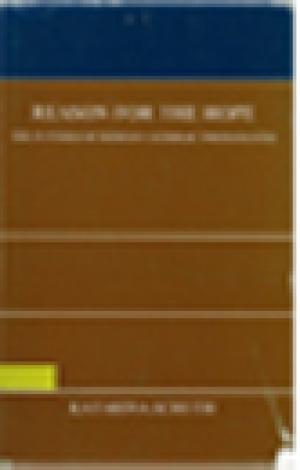
This new 8-volume series brings us the seasoned fruits of modern scholarship. The authors are personally and pastorally aware of the theological concerns and challenges of our time and are attuned to the needs of contemporary students. (From the Publisher)
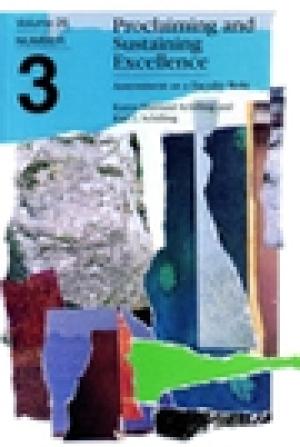
This book provides a brief history of the most recent wave of assessment in higher education, particularly focused on the faculty role in assessment. It traces major conceptual, methodological, political and policy advances in assessment over the past decade. The authors suggest some ways of thinking about assessment, strategies, and next steps which they view as necessary for more clearly envisioning assessment as a faculty role. (From the Publisher)
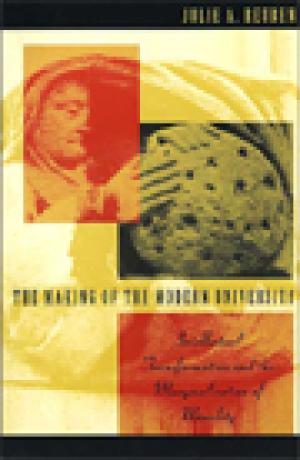
The Making of the Modern University: Intellectual Transformation and the Marginalization of Morality
What is the purpose of higher education, and how should we pursue it? Debates over these issues raged in the late nineteenth century as reformers introduced a new kind of university - one dedicated to free inquiry and the advancement of knowledge. In the first major study of moral education in American universities. Julie Reuben examines the consequences of these debates for modern intellectual life. Based on extensive research at eight universities - Harvard, Yale, Columbia, Johns Hopkins, Chicago, Stanford, Michigan, and California at Berkeley - Reuben examines the aims of university reformers in the context of nineteenth-century ideas about truth. She argues that these educators tried to apply new scientific standards to moral education, but that their modernization efforts ultimately failed. By exploring the complex interaction between institutional and intellectual change, Reuben enhances our understanding of the modern university, the secularization of intellectual life, and the association of scientific objectivity with value-neutrality. (From the Publisher)
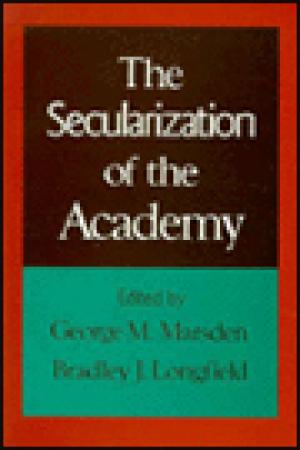
A searching exploration of a century and a half of higher education in American culture. This book will enliven, and inform, the wide-ranging discussion now taking place. Bringing together eleven new essays--most published here for the first time--on the secularization of American, British, and Canadian higher education, this text maps some of the major contours of a largely unexplored topic. It focuses on the histories of leading universities since the late nineteenth century, analyzing the transition from an era when organized Christianity and its ideals had a major role in leading institutions of higher education to an era when they have almost none. This book is an important resource for students of religion and the history of education. (From the Publisher)